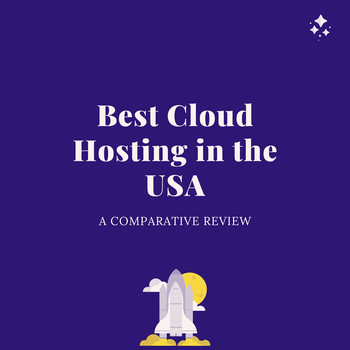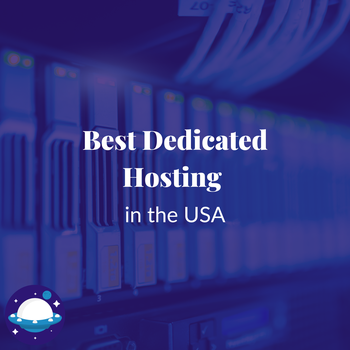Kubernetes Deployment Could Be Uneconomical, Promoting Cloud Wastage
Poorly managed Kubernetes could mean a great deal of time and resources wasted.
TL;DR
A startup massively invested in investigating cloud-related performance and resources with artificial intelligence and machine learning, StormForge revealed that organizations are over-provisioning infrastructure and provoking cloud waste.

Key Facts
After a detailed survey of 105 IT professionals in North America, StormForge revealed that 48% of cloud resource spending ends up being wasted.
StormForge's survey revealed over $17 billion annual waste on cloud resources.
Kubernetes plays the lead role in cloud complexity with a 62% contribution.
Details
One significant contributor and challenge of climate change is the cloud industry. Data centers drastically took their place as major energy consumers and emitters of the carbon population, exuding roughly 100 million metric tons of CO2 into the atmosphere annually, contributing as high as 3% of the world's cumulative energy consumption.
Over-provisioning in IT is an activity as old as IT itself. Developers and IT teams always spend too much to ensure every application never lacks resources to maintain availability and durability. Keeping these standards come at massive costs.
Placing 105 North IT professionals under the microscope, StormForge reveals a cloud resources wastage of 48%, which is just slightly less than half. The survey finds that 76% of organizations have taken it upon themselves to deplete this waste; it hinges high on the to-do list of 33% of organizations in the cloud.
A third of respondents hinted significant increase in cloud spends over the next 12 months, which correlates with the focus on cloud wastage mitigation.
StormForge Vice President of Marketing Jacques Penicaud mentioned that a high volume of that increased spending revolves around the deployment of cloud-native applications on Kubernetes clusters.
A survey explains that about three-quarters of respondents run Kubernetes clusters, with only below half running 11 clusters or more. 33%, a third of these respondents rely on default configuration from cloud service providers to shape their clusters, while 31% use the trial-and-error method. 27%, surprisingly, mentioned reliance on machine learning algorithms in shaping their kubernetes clusters.
55% of companies make their IT Ops, or Cloud Ops teams do the Kubernetes deployment, while about 29% have their development and engineering teams doing it. No one ever seems to get it particularly right due to the utter complexity of the container orchestrator. There are lots of crucial decisions to be made when deploying cloud-native applications on kubernetes. Resource allocation, CPU requests and limits, memory requests and limits, and replicas. What's more, garbage collection and Java Virtual Machine heap size do these for each container, not to mention the multidimensional optimization difficulty. Failing to implement all these acutely takes its toll on performance and reliability.
Last year alone, organizations expended over $17 billion in cloud spend on stagnant resources.
Penicaud depicted that as automation architecture and machine learning algorithm testing tools become widely embraced, over-provisioning should hit low levels due to the ease in Kubernetes deployment and management.
94% of respondents claim knowledge of monthly cloud spend, meaning predictability is not an issue. The issue comes down to control over cloud spend.
Get similar news in your inbox weekly, for free
Share this news:
Latest stories
Best Cloud Hosting in the USA
This article explores five notable cloud hosting offers in the USA in a detailed way.
Best Dedicated Hosting in the USA
In this article, we explore 5 of the best dedicated hosting providers in the USA: …
The best tools for bare metal automation that people actually use
Bare metal automation turns slow, error-prone server installs into repeatable, API-driven workflows by combining provisioning, …
HIPAA and PCI DSS Hosting for SMBs: How to Choose the Right Provider
HIPAA protects patient data; PCI DSS protects payment data. Many small and mid-sized businesses now …
The Rise of GPUOps: Where Infrastructure Meets Thermodynamics
GPUs used to be a line item. Now they're the heartbeat of modern infrastructure.
Top Bare-Metal Hosting Providers in the USA
In a cloud-first world, certain workloads still require full control over hardware. High-performance computing, latency-sensitive …
Top 8 Cloud GPU Providers for AI and Machine Learning
As AI and machine learning workloads grow in complexity and scale, the need for powerful, …
How ManageEngine Applications Manager Can Help Overcome Challenges In Kubernetes Monitoring
We tested ManageEngine Applications Manager to monitor different Kubernetes clusters. This post shares our review …
AIOps with Site24x7: Maximizing Efficiency at an Affordable Cost
In this post we'll dive deep into integrating AIOps in your business suing Site24x7 to …
A Review of Zoho ManageEngine
Zoho Corp., formerly known as AdventNet Inc., has established itself as a major player in …












